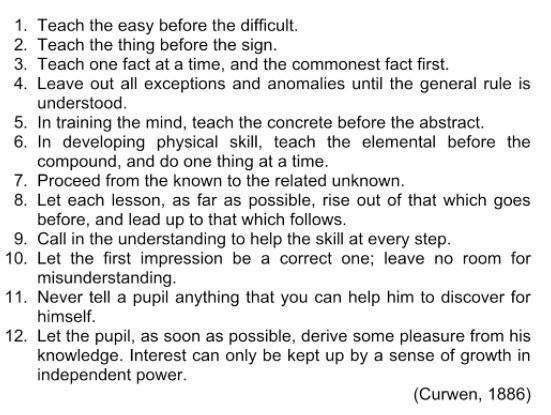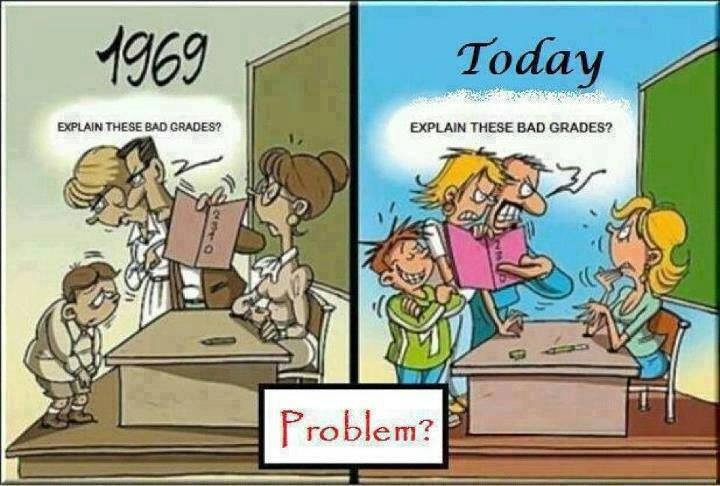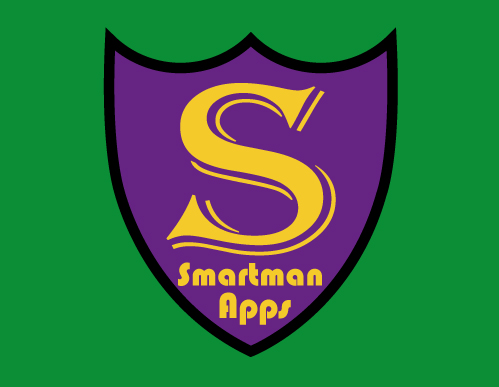Python. To write mods for renpy ‘games’.
Learned flash in the 90’s to make terrible games.
I wanted to be a game programmer. 15 years on, I haven’t touched a video game in over a decade, and I find them pretty boring.
No idea, if this was the case for you, but learning how the magic works can definitely make it less magical…
I became a Game Programmer. Job market sucks right now, so I’m cleaning toilets and taking out trash at a grocery store.
But hey, on my days off I sometimes have time to work on games.
I wanted to see what the COBOL job market looked like. So I learned the superficial basics of COBOL in a day or two, just so I wouldn’t be a complete fraud when I put it into my linkedin profile as a skill to see what happens.
How did that turn out for you?
Didn’t get a single reqeust, so this had less impact than expected. Thought there was more old rusty companies looking for a non-retired engineer.
Yeah I think that’s mostly a myth. When I looked up salaries they were definitely good (for programming; amazing for the average person), but not “I would write COBOL for that” good.
There aren’t really that many old COBOL systems around. I think it’s mostly just over-reported because you can write an article about how some government department still uses COBOL but you can’t write about one that switched to Java.
I learned bash instead of python because my 8 year old brain saw all the parentheses and thought “ew no”…
Experienced me sees a language where parentheses are optional and I think “ew no”
Might not be dumb, but I learned programming to create things and learn how things worked. Started with entering in hundreds of lines of BASIC printed in magazines, including debugging font typos.
Then learned MUF, or Multi-User Forth, a stack-based text language for creating text based dungeons, and managed to stop some malicious users spying and people’s privacy in the server.
Every so often, I pick up a new language to test it to see if it does cool stuff or help me further learn more about how things function.
Not really a dumb reason, but back in the day I was stuck in the WordPress developer loop and tired of it. I was pretty familiar with a handful of languages, but wasn’t doing much more than setting up themes and building out pages with builders.
One day I heard the CTO talking about a tool he would love to have but couldn’t find anything that worked how he needed it to. The CTO was a big buzzword guy and recently shared an article with my manager at the time about how C++ was “the best language”. So naturally I chimed in and told him I could build that tool easy peasy and I would use C++ obviously because it’s the best language.
It was such a simple tool, basically just matching phrases and categories and spitting out a list of options. It took me months to make, but I learned a lot and it kind of worked for the most part and everyone was happy. I eventually got a de-facto department in the company where I would just build internal tools and handle some legacy codebases that they were previously outsourcing.
I later on got my current job because of that leap.
TLDR: I learned C++ because I was bored and lied that I already knew it.
Arduino and Python to create a sexy machine that syncs up to videos. Oh I also made the sex machine part, like machining metal parts and soldering electronics.
please tell me you created a
dickobject for the project which is exactly the same as adictobject.error: dict not found. Were you looking for dick?
I, as a teacher, have had to learn several languages, but that’s not the dumb reason bit. The dumb reason bit was WHY I had to teach Python, which once I learnt it (so I cold teach it) I could see right away was NOT a suitable language for teaching to Year 7 (who up to now have only used Scratch). I was teaching the U.K. curriculum, and I found out that teaching C# was also allowed - still not ideal, but better than Python for learners -but pretty much all schools were teaching Python. When I dug into it I found I was far from alone in not wanting to use Python… and I also found out the reason schools were teaching Python. It was because from an ADMINISTRATIVE point of view it was much easier for the schools to have us teaching Python. In other words, the office-workers who didn’t have to teach it, only had to admin it, were forcing everyone to teach Python because they wanted the lower overhead that came with installing/maintaining that vs. C#. ARGH! All the teachers who wanted to teach C# were running into exactly the same road-block.
I’ve always seriously questioned why python has become the defacto beginner language. Sure, a simple print hello world is short, but I feel like static languages are easier to see what’s going on.
Well, I’m only speaking here for my experience with teaching the U.K. curriculum, but probably the same thing applies elsewhere. I know this much - as a teacher, it’s very frustrating!
I’m really surprised to hear that teaching C# to 7th graders is easer than teaching them python. Python was invented to teach. It looks like pseudo code. I have almost zero experience in teaching so I trust your experience. But can you elaborate a little? What makes teaching C# easier?
I just replied to someone else with the same question. Less can go wrong (but in either case a non-OOP language, like Pascal, is a much better starting point. You should only ever teach students one concept at a time).
As it is, when we had to teach them HTML, the resources we were given were using PHP at the same time, so I scrapped that and just taught them HTML myself. We never teach more than one concept at a time, so I don’t know how these other things found their way into the curriculum/resources.
It looks like pseudo code
P.S. as a teacher, I can tell you I have seen students who even struggle to write pseudo code. It’s like trying to teach them Greek (not all students, but some, and we need to cater to the lowest common denominator).
Oh! I just remembered this video. If you wanna know how students can struggle with pseudo code, watch the video. I use this video when I teach algorithms (students are even worse at that than pseudo code).
I hate having to cater to the lowest common denominator, I had to struggle with un-engaging classes all throughout elementary and middle school. I’ve seriously thought about becoming a toucher so I’dlike to ask, in your experience, what happens to the children that are able to process more advanced information? Can something be done to keep them engaged and nurture their development too?
Oh definitely! Different students have different learning styles - some learn by memorising rules (ROTE), some learn by understanding the rules (Constructivist), some are visual learners, some are better at learning in group activities, etc. - and we have to cater to them ALL, to keep them all engaged (here’s WHY we have this rule, here’s a video about it, here’s a group activity about it, here’s a worksheet to practise it). But I was referring to the TOOLS that we use with class. We can’t use a tool that the advanced students have no trouble with but the less adept students struggle with - we have to use a tool that the whole class can use, and that’s what I meant about catering to the lowest common denominator.
Also some (not all) schools have special classes for gifted and talented (G&T) students. And in fact one class I’ve had in my time is a class which was comprised of half the students had various learning difficulties (such as being dyslexic), though they weren’t told that (these days it’s all about trying to keep them in the mainstream as much as possible. So in this class the dyslexic student had a regular student sitting next to him for immediate help with reading anything, which left me free to only need to help him with actual educational issues).
Thanks for your reply!
Pascal was my first language. Self-taught. It was pretty good.
My first language was Basic, and Pascal is definitely better than that as a first language (it’s what it was designed for).
Surely an unpopular opinion lol.
Python is a great first language.
…and riding a bike is easy. Now go watch some kids who have never ridden a bike before and see how that’s working out for them.
as an adult who never rode a bike I can see
it looks like pseudo code
Does it though? I imagine most pseudocode looks like the language the writer is most familiar with. My pseudocode definitely doesn’t look like python.
Honestly, I taught myself JS in like 2009 as my first programming language. My high school taught Java, but I didn’t get OOP. I understand functional programming though, so after JS I taught myself Elixir, then OCaml and Haskell. I really wish I was just taught Clojure or another lisp-like in school though. Python is… okay… I need expressions in my language, though, and Python is not that.
I’m curious why you think Python is unsuitable. Both of my kids picked up Python pretty easily.
- object-oriented (this is their FIRST proper programming language - they don’t even know how to write loops yet and you want us to teach them OOP at the same time?! And as it turns out, I had one student who literally could NOT work out how to use a loop - kept writing 20 variables for 20 iterations. i.e. her variables never varied!)
- variables are weakly-typed (use it for anything, whether it’s what you first used it for or not, Python doesn’t care)
- indentation has to be exact (i.e. no brackets, just exact indentation). I had one student whose program wasn’t working, and it even took ME a while to find what was wrong with it (a missing space).
I think there was more, but that’s what I remember off the top of my head. If it was up to me then I would’ve used Pascal - that’s what it’s designed for! But at least C# has strongly-typed variables, and doesn’t care about your indentation (and unfortunately there was no non-OOP language choice available - I’m not sure how this got in the curriculum when every teacher knows you only teach one concept at a time). As I said, many other teachers felt the same way, but couldn’t get it past their school admin’s.
You can use types in Python and your tools will generate warnings
def something(a: int) -> int: return “potato”
will turn yellow in an IDE more advanced that notepad.
Most editors will also show a red line where the indentation is wrong.
Most editors
Same thing still applies - you need to get it past the school admin gatekeeper.
If you’re writing any language in like notepad, you’re going to have a bad time. I accept your point that school administration may be making questionable choices about what software is installed, but that’s not a problem unique to python.
that’s not a problem unique to python
No, but it’s a bigger problem for C# than is is for Python (though this is changing now), so all the U.K.-based schools were teaching Python, rather than the more-appropriate C#. That was my original point - that’s the dumb reason I had to learn Python, school admin’s wanted the lower overhead of the worse language.
object oriented
Python does have OOP but you are not at all forced to use it. You can write code in a functional or even procedural style.
typing
I do hate that python doesent have proper support for typing but I think weakly typed variables will actually help beginners as it is less to think about to start off with.
indentation
I think there are pros and cons here. In other languages it is considered good style to use indentation anyway.
I’m sure it is difficult to teach a large class like that though. It was hard enough for me to learn with a much more favourable teacher to student ratio than you probably have. Sorry but honestly I do sympathise with admin as well.
Python does have OOP but you are not at all forced to use it.
Not as an individual, but I’m talking about a situation precisely where the individual choices of teachers are ignored, in some cases by school admins, in some cases by faculty choices. Fortunately I also ran a computing club, in which I was autonomous with how I ran it, and I taught my computing club students C#/MAUI… but even then still saw some of the issues you run into with teaching students. e.g. I told them to install Visual Studio ready for next week, showed them where it was, what workloads to install, and then the next week one of the students had installed Blend for Visual Studio, not Visual Studio. “Look, it has Visual Studio in the name!”. (sigh)
I think weakly typed variables will actually help beginners as it is less to think about to start off with
No, that’s exactly the problem to start with. Another rule of teaching (see below for the full list I’m quoting these from) is “never let the first impression be a wrong one”. If you let students think they can use variables for anything, then you run into problems when they can’t. This is why teaching them with strong types first is better - they learn you need to be careful with how to use them, THEN maybe you can let them have some more freedom like Python allows.
In other languages it is considered good style to use indentation anyway
Yes, but in those languages it’s optional. In Python it’s mandatory, and if someone’s code isn’t working it’s far easier to spot a missing bracket than a missing space.

It’s odd to me that you’re disagreeing with their actual experience teaching.
Lots of us have the experience of being the kid in that situation though. I learnt python in secondary school.
They’ve been through the other side of this experience multiple times though.
have the experience of being the kid in that situation
Which kid? The gifted one, the one who didn’t understand loops and used 20 variables for 20 iterations, the one who didn’t understand how to write pseudo code, the one who was dyslexic,…?
I learnt python in secondary school
Which Year? I didn’t say it wasn’t appropriate for high school, I said it wasn’t appropriate for Year 7 as a first programming language.
Thanks. It’s a very 21st Century phenomenon that I’ve unfortunately run into many times

Why do you even have to mention OOP? C# is object oriented too. Would you start explaining OOP too when teaching C#?
Python is comparatively easier as it’s nearly literally pseudo-code. There’s no need to even write a main function or functions at all. It uses less characters too e.g no need for semi-colon, brackets in for loops and if statements
As for indentation being exact, IMO that’s on you. Beginners should be given a proper development environment to work in that helps them as much as possible. Modern editors and IDEs point out syntax errors and indentation errors are incredibly basic. If they are working in an environment that doesn’t even point that out to them, they have been setup incorrectly.
Why do you even have to mention OOP?
Because I was saying why it’s a bad choice to teach to Year 7. I already said if it was up to me I’d teach them Pascal.
C# is object oriented too
Yes, I know, but in this case it’s the lesser of 2 evils, for the other reasons I gave.
Python is comparatively easier as it’s nearly literally pseudo-code
And as I just said to someone else, students even struggle with pseudo code.
e.g no need for semi-colon, brackets
And I already said that’s one of the drawbacks - indenting has to be EXACT or your program doesn’t work anymore.
As for indentation being exact, IMO that’s on you
It’s not on me - it’s in the language itself to begin with. I have no control over it.
Beginners should be given a proper development environment to work in that helps them as much as possible. Modern editors and IDEs point out syntax errors and indentation errors are incredibly basic
Now see if you can get the school admin’s to install those ones. As I said, that’s the root issue to begin with - the school admin’s.
If they are working in an environment that doesn’t even point that out to them, they have been setup incorrectly
Now see if you can get the school admin’s to fix it. Welcome to the struggle the teachers face in teaching what WE want to teach them.
It seems you did the best you could with what you had to work with. It’s a shame the other users don’t understand that you didn’t get to choose the tools your students could use and instead went with what they, in their freedom to choose and install what they want, would have used to teach. I can imagine you only had notepad and Idle to use.
Thanks. From memory we were using repl.it, or something very similar. This made it easy for me to look at their code when they had problems (and even then, as I said to someone else, it was quite a while before I realised one of them simply had the wrong indentation on one line - I kept looking at the code and thinking I couldn’t see anything wrong with it, then eventually I realised there was a wrong indentation. If it took me that long to realise, then of course that’s something students are going to struggle with).
Notably, when I did my C.S. degree, they knew to only teach one concept at a time. We learnt Pascal in first year, then did OOP in second year.
I learnt to program in python (in year 12). It was pretty good:
- less intimidating than the languages full of braces/brackets.
- as it’s also a scripting language, you can ignore OOP and just write code.
- has lots of kid friendly drawing libraries (tortoise.py anyone?) so they can make things they can see on screen etc
I learnt to program in python (in year 12)
Yes, it’s fine for Year 12 - you’ve already learnt all that stuff by then - it’s NOT fine for Year 7 as a first proper programming language, when they haven’t learnt ANY of that stuff yet.
P.S. the students aren’t going to have any tests where it matters until Year 10, and the curriculum even says that at least 2 languages must be taught (in my case we chose HTML as the second language, because…), and so even though many teachers would like to teach their students C#, the schools simply aren’t LETTING them do that. They don’t want the admin overhead that comes with teaching C#, so it’s Python and… nope, it’s just Python (and so then you have teachers opting for a second language like HTML, cos they can’t get their school/faculty to buy-in on teaching C#, simply because they don’t want the admin that comes with it. The fact that it’s a better language to learn isn’t even considered).
Is the fact that C# produced executables also a problem? With python you can ‘protect’ non lab computers at the school by just not installing the python runtime on them. Teach them c# and I guarantee they will be making executables to cause trouble.
Generally agree with you that teachers should be able to choose at least one of the languages to teach. basic web dev stuff is probably pretty useful to them though if it includes JavaScript?
Is the fact that C# produced executables also a problem?
Trust me, the conversation never even gets that far.
just not installing the python runtime on them
We weren’t! We were using repl.it (or something very similar). I don’t know what the story was at other schools, other than many other teachers also wanted C# but had to do Python (it was when I came across this that I finally accepted defeat in trying to get another language in instead of Python. I wanted to start with Pascal and then do C#. In the end I had to do HTML and Python. i.e. the status quo).
Generally agree with you that teachers should be able to choose at least one of the languages to teach.
We’re supposed to be able to choose both languages, but school admins are taking away one of our choices.
if it includes JavaScript?
I wouldn’t do that at the same time as HTML - maybe later, separately. As I’ve said, as teachers we only teach one concept at a time.
I leant from scratch as my first programming language in year 12.
They tried to teach OOP in year 13, but I didn’t really get it until university.
This was years ago at this point, I think they introduced the programming GCSE the year after I did my A-Levels.
A scripting language like python is the ideal language to start with because you can JUST learn the programming bit without worrying about OOP, project structures, compiling etc.
I think they introduced the programming GCSE the year after I did my A-Levels
I was teaching the IGCSE, to students all over the globe.
you can JUST learn the programming bit
But NONE of the resources which have been provided to schools do it that way - they ALL use OOP. If that’s what your faculty has chosen to use, then that’s what you have to use. It comes back to what I’ve been saying all along - the schools are dictating to the teachers what they are to teach, and it’s NOT based on what’s best for the students educationally, but what has the least admin overhead for them. That’s the stupid reason that I had to learn Python - admin concerns!
Oh, ok, that’s annoying then. One of those cases where it feels like the person putting the course together has never actually interacted with children?
I was trying to rank up in Codewars, and there was a 1kyu (hardest and worth the most points) kata only available in OCaml, so I learned it in order to solve.
I learned Go because I really liked the keyword go
This feels like me wanting to learn Hare because I like rabbits, which I bring up because someone left this reply for me and I think it applies to you too:
That is such a sweet reason! Whimsical decisions like this can be some of the best. Life demands a bit of whimsy every now and then.
I learned Applesoft BASIC to draw a surprise Dickbutt.
If we’re counting machine code, I learned 6502 ASM for faster division on NES, because it was half the CPU time on my first-person shooter. After many iterations pushing it down to mere hundreds of cycles, I slapped my forehead and implemented log tables in like 512 bytes and 45 cycles. It’s negligible now. And supports constant fractional scaling. And has overflow / underflow saturation. Really, 6502 ASM is fantastic to fuck around in, even though the rest of the NES’s hardware suuucks.
from googling I see wikipedia has a book for it: https://en.wikibooks.org/wiki/6502_Assembly
Perl because a system I worked on was just a bunch of Perl scripts in a trench coat pretending to be a program.
I learned it because the ancient beast kept breaking because it just a bunch of Perl scripts in a trench coat cobbled together over generations.
because a system I worked on was just a bunch of Perl scripts in a trench coat pretending to be a program.
Hmm… OpenBSD ports system and package manager?
I learned a bit of KOBOL after hearing it was the weirdest, hardest, and most unused programming language back in highschool. But only really enough to do a hello world and other very simplistic programs. More because finding resources at that time was difficult.
Needed to write a syntax highlighter for VB.Net but I couldn’t find any weirdly written edge cases online, so I had to make some myself.














